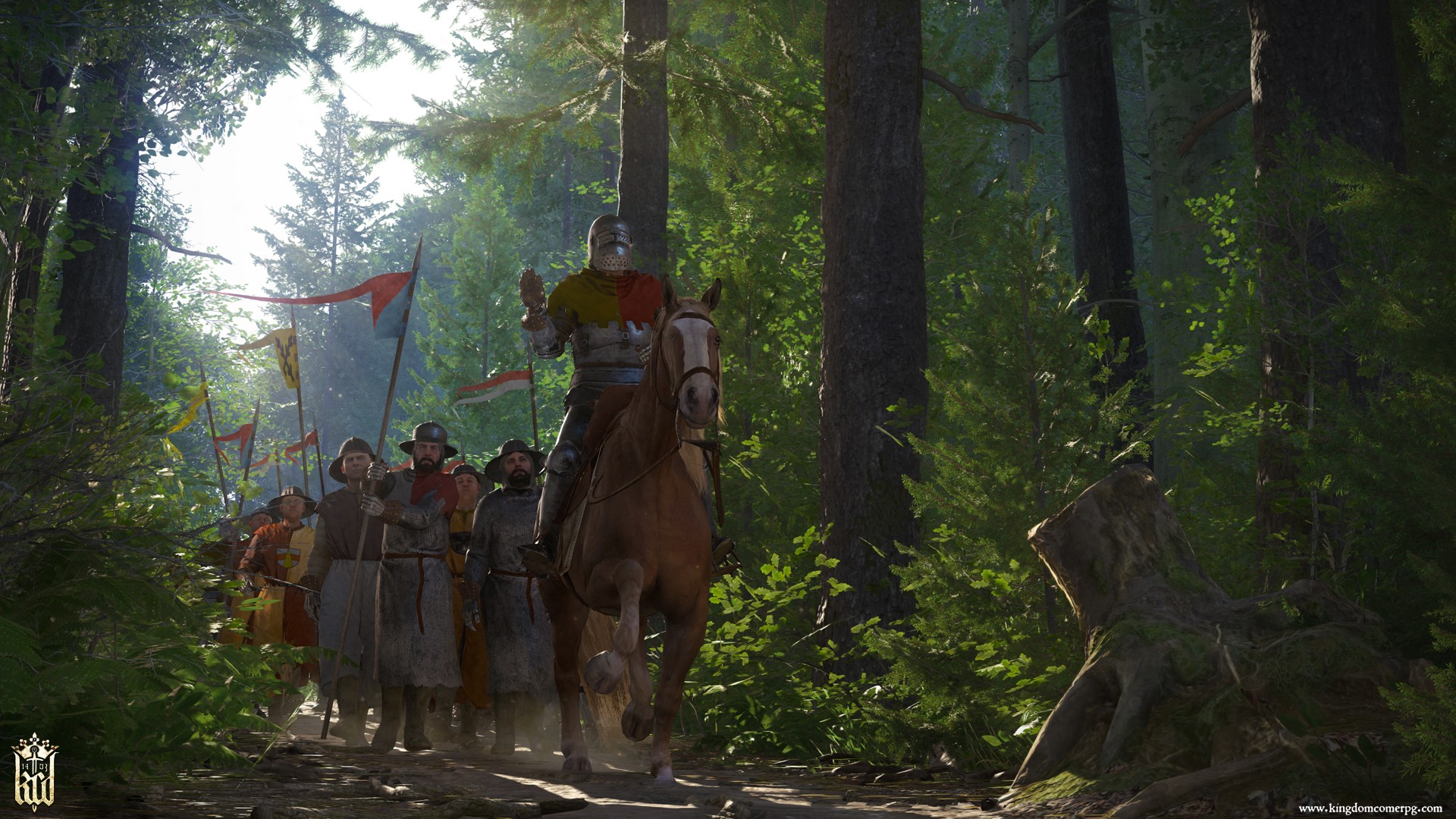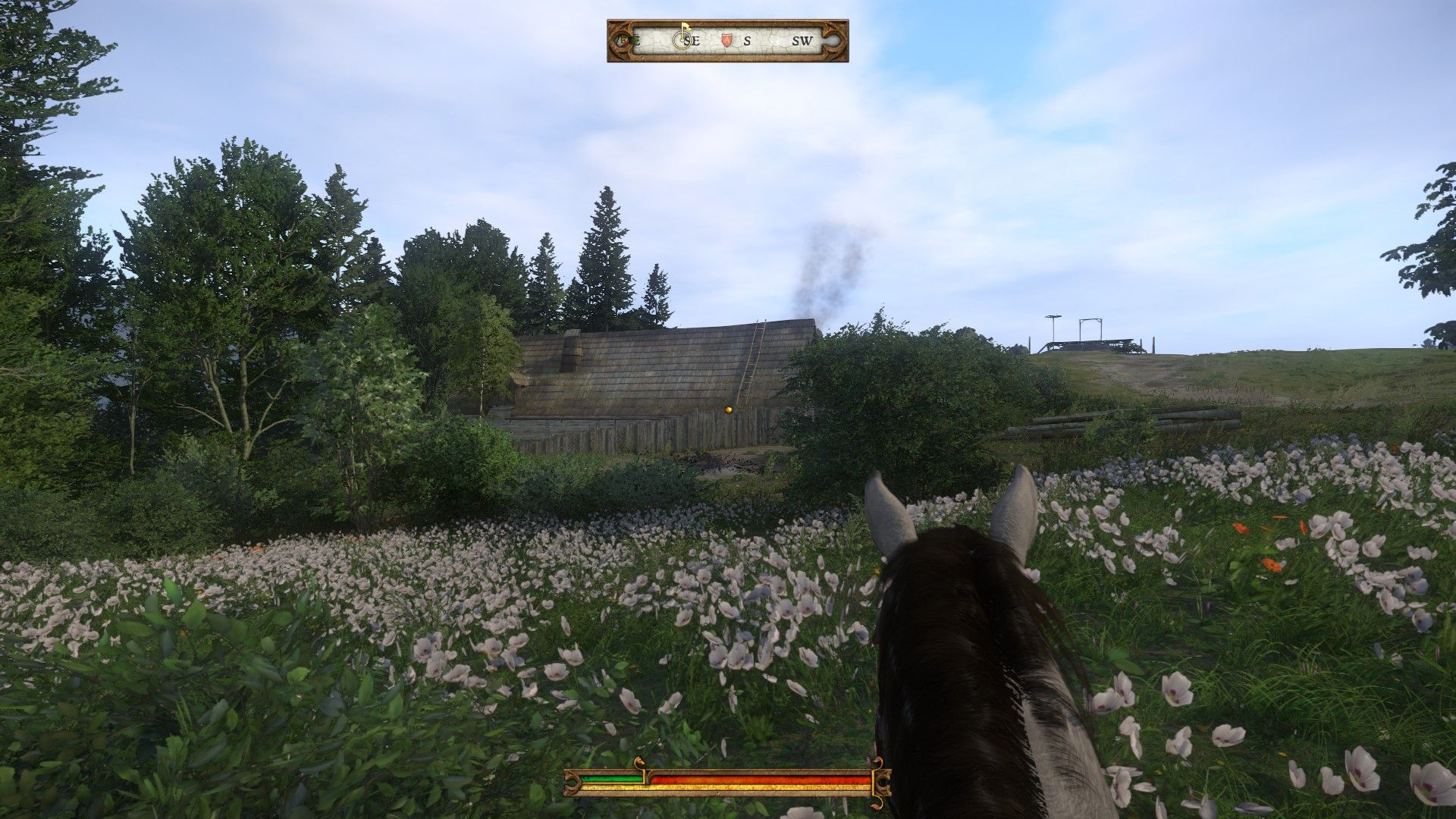Platforms:
Xbox One, PS4, PC
Released:
February 13, 2018
Publisher:
Deep Silver
Developer:
Warhorse Studios
There are a good handful of open-world, medieval RPGs (role-playing games) out in the gaming sphere. Some offer incredible storytelling, some offer a huge array of amazing things to stumble upon, and some have been re-released 6 times in the last 4 years. But the one thing I’m yet to see a medieval RPG do is convincingly throw you into a world that is as genuinely filthy, unpleasant, and as gruelling as the period of time it is set. So in trots Kingdom Come: Deliverance, a game that throws away all elements of fantasy, removes any feeling of power, and hits you over the head with a great dose of reality.
Developed as a debut title by a relatively small development team, Kingdom Come: Deliverance is an overly ambitious project that looks to redefine the Action-RPG genre. Played from the first-person perspective, the game will have you play as a Blacksmith’s son, Henry, in 1403 Bohemia (which is now the Czech Republic). Henry narrowly avoids his death as his home town is invaded by a hostile army looking to take control of the crown. Your role within the game is not that of a hero, but that of a peasant boy attempting to seek retribution in a world that is set up for you to fail.
At the forefront of design for Kingdom Come: Deliverance is narrative and authenticity. Jumping into the game for the first time was a bit of a shock for me because I didn’t quite expect the game to be so focused on narrative, dialogue and world-building. Luckily for the team at Warhorse Studios a lot of their script was written for them because the game sticks vehemently with the historical accuracy angle. Using real world settings and conflict, Kingdom Come: Deliverance tells a decently engaging story that never felt forced or unrealistic.
“Innovative mechanics are put in place that help cement this game as the go to for those who want a medieval life simulator.”
What sets the game apart though is most certainly its attention to detail and focus on authenticity. Innovative mechanics are put in place that help cement this game as the go to for those who want a medieval life simulator. The NPCs have a schedule and abide by the day / night cycle. If you don’t meet with your target at the allotted time they will move on without you. You also have to keep yourself clean and tidy, approach a nobleman with clothes that are dirtied from your adventure and you’ll be met with derision and disdain. Put on a helmet and your vision will become impaired, sometimes down to a slit. It’s actually all very impressive.
That’s not to say that the game can’t go too far with its approach to realism. In fact, I’d suggest that Warhorse Studios focused more on authenticity than they did on player enjoyment, and were happy to sacrifice the latter for the former. Keeping yourself clean and tidy is a very intriguing mechanic by itself but when you combine that with keeping on top of Henry’s hunger and keeping Henry well rested it all starts to feel like a chore. The save game system is probably the worst offender however because you can’t just save whenever you’d like. The game will auto save for you once you rest in a bed or occasionally throughout questing but if you want to manually save you have to drink a Saviour Schnapps, a rare potion found within the game. I get it, the devs don’t want us to save our game frequently and reload when something bad happens. But the restriction on saving is nightmarish. I have a life, sometimes thing get in the way, and at those moments I need to save and leave. Thankfully this issue has become widespread enough that it has been confirmed that it will eventually get a patch to fix the issues.
The game’s approach to questing is quite refreshing. Your objectives feel organic, nothing is forced, and there are always multiple options available to tackle any given quest. The things you’re setting out to do feel authentic and always seem appropriate for the context, for the time period, and for Henry’s character. The game does a good job of making you feel like narrative progression was by your hand. That your choices, successes, or failures shaped the experience.
Henry is not a born warrior. He is not the “Chosen One” or the only person who can save the world. He is a simple blacksmith’s son with serious flaws, naivety, and inabilities. The way your character is treated along his journey is not that of an important character but that of yet another peasant boy in a world created to only benefit the wealthy and those born into nobility. It’s a refreshing take on a stale “hero” archetype.

Henry’s lack of ability or experience in certain fields is actually built in to the game’s design. You level up by engaging within any given task. The more you fight, the better you get at combat. Henry starts the game as being pretty terrible at almost everything. Aiming a bow is a huge challenge, picking a lock is a feat of futility, and convincing nobility to listen to a dirty peasant is a pipe dream. Although the more you try the better you get and suddenly you’re riding that horse with considerably more ease. It’s clever design that doesn’t fall into the trap of many other games. In other games your character can gun down an entire army with basically no training. In Kingdom Come: Deliverance you lose a fist fight with a drunk in the first 20 minutes of gameplay.
Combat in the game is slow and laborious. At first it felt clunky but once again this is intended design. The awkwardness is a reflection of your character’s inability. But as you improve and progress the combat starts to make more sense. Melee combat involves directional attacks, directional blocks, dodging, feigning an attack, and careful management of your stamina. The system was deep and allowed for a high skill ceiling where you continued to improve as you played. When targeting an opponent aim for weaknesses in their armour. When using a bow, shooting your arrow through the slit of your opponents armour is a challenging but incredibly effective task. And do not take on a group of enemies at once, you will fail.
Positive:
- Innovative design
- Strong narrative focus
- A character who isn't powerful, isn't the "Chosen One"
- Attention to detail
- Vast open-world with many options at your disposal
Negative:
- Load times before dialogue
- Can sacrifice fun for realism
- Nightmarish save game feature
- Can be rough around the edges - glitches, imperfect animation quality
Kingdom Come: Deliverance is certainly an impressive game. The development team reached for the stars and have made a product that realism enthusiasts will no doubt claim a masterpiece. For me it sacrificed player enjoyment a little too much but I can’t understate my appreciation and respect for the end product regardless. This is the kind of game that is going to benefit hugely from post-release updates, patches, and the modding community. A little rough around the edges, undeniably, but there’s something truly special at the heart of the game.












